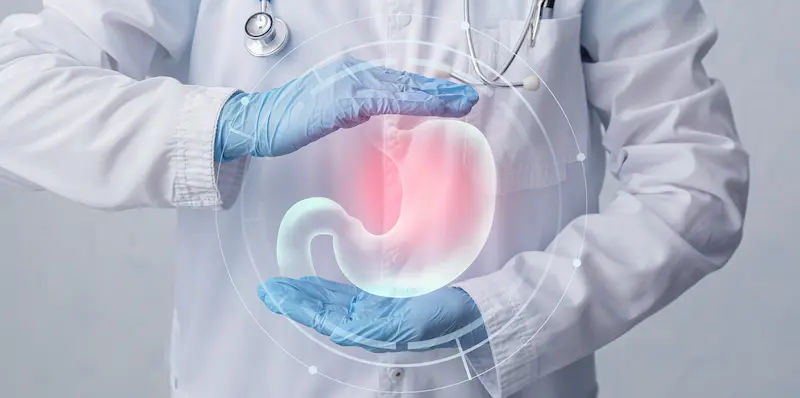Natural Remedies for Stomach Pain: Soothe Your Discomfort
Know about the natural remedies for stomach pain, top remedies, natural methods, dietary adjustments and lifestyle modifications for stomach pain and more.

Written by Dr. Siri Nallapu
Reviewed by Dr. Dhankecha Mayank Dineshbhai MBBS
Last updated on 13th Jan, 2026

Introduction
Stomach pain is a universal, unwelcome guest that can range from a mild nuisance to a debilitating cramp. Whether it's from a heavy meal, a bout of stress, or an underlying digestive issue, the search for relief is immediate. While severe or persistent pain always requires a doctor's visit, many common stomach aches can be effectively managed with simple, natural remedies found right in your kitchen or pantry. This guide dives deep into the world of natural treatments, exploring the science behind age-old remedies and providing practical, actionable solutions to help you soothe your stomach and restore your comfort.
Understanding Your Stomach Pain: A Quick Guide
Before diving into remedies, it's crucial to listen to your body. Stomach pain can originate from different areas and have various causes.
- Upper Abdominal Pain: Often related to indigestion, gas, acid reflux, or gastritis.
- Lower Abdominal Pain: More commonly associated with bloating, constipation, irritable bowel syndrome (IBS), or menstrual cramps.
- Generalised Discomfort: This can be from a viral bug, food intolerance, or stress.
Consult a Gastroenterologist for Personalised Advice
Top Natural Remedies for Immediate Relief
When discomfort strikes, these proven natural solutions can offer quick calming effects.
1. The Power of Ginger: Nature's Anti-Nausea Aid
- Ginger is a powerhouse root with a long history of treating digestive ailments. Its active compounds, gingerols and shogaols, help accelerate gastric emptying and reduce contractions in the stomach, which can alleviate pain caused by indigestion and gas. A 2018 meta-analysis published in Food Science & Nutrition concluded that ginger is effective in treating nausea and vomiting.
- How to use: Sip on freshly grated ginger tea. Steep a 1-inch piece of peeled, sliced ginger in a cup of boiling water for 10 minutes. Add a teaspoon of honey for taste.
2. Peppermint: The Natural Antispasmodic
- Peppermint is excellent for relieving spasms in the intestinal tract. Its main active ingredient, menthol, has a relaxing effect on the muscles of the digestive system, which can ease pain from gas and bloating. Studies, including one in the Journal of Gastroenterology, have shown that peppermint oil is effective in reducing symptoms of IBS.
- How to use: Drink a cup of warm peppermint tea. Alternatively, peppermint oil capsules (enteric-coated to prevent heartburn) can be effective but should be used under guidance.
3. Apply Heat: Simple and Effective
- Applying a heating pad or hot water bottle to your abdomen is one of the simplest home remedies for stomach cramps. The heat helps to relax the muscles and can ease discomfort caused by muscle strain, gas, or menstrual cramps. The warmth increases blood flow to the skin’s surface, which can distract the brain from deeper aches.
4. The BRAT Diet: For Upset Stomachs
- When dealing with a sour stomach or diarrhoea, the BRAT diet (Bananas, Rice, Applesauce, Toast) is a classic for a reason. These bland, low-fibre foods are binding and can help firm up stools. Bananas are particularly helpful as they are rich in potassium, which can be lost during bouts of diarrhoea.
- Modern Take: Today, experts often recommend also incorporating other bland foods like plain crackers, boiled potatoes, and clear broths for a more balanced approach.
Dietary Adjustments for Long-Term Gut Health
Preventing stomach pain is often more effective than treating it. These dietary strategies can build a more resilient digestive system.
Identifying and Eliminating Trigger Foods
A key strategy for managing chronic stomach discomfort is identifying food intolerances. Common triggers include:
- Dairy (lactose intolerance)
- Gluten (celiac disease or non-celiac sensitivity)
- Spicy or acidic foods
- Artificial sweeteners (sorbitol, mannitol)
- Carbonated beverages
Try keeping a food diary for a few weeks, noting what you eat and any subsequent symptoms. This can help you pinpoint and eliminate your personal triggers.
Incorporating Gut-Friendly Foods
1. Probiotics: Found in yoghurt with live cultures, kefir, kimchi, sauerkraut, and kombucha, probiotics introduce beneficial bacteria to your gut, aiding digestion and reducing bloating.
Fibre-Rich Foods: For pain related to constipation, gradually increasing fibre intake with fruits, vegetables, and whole grains is crucial. Important: Increase fibre slowly and with plenty of water to avoid worsening gas and bloating.
2. Stay Hydrated: Drinking adequate water is essential for digesting food and preventing constipation. Aim for 8-10 glasses a day, sipping slowly throughout the day.
Lifestyle Modifications to Soothe Your Stomach
Often, our daily habits are the hidden culprits behind digestive distress.
Manage Stress for a Happier Gut
The gut-brain connection is powerful. Stress and anxiety can directly impact your digestive system, leading to symptoms like cramping, bloating, and even altering gut bacteria. This is often referred to as nervous stomach pain.
Techniques: Practices like deep breathing exercises, meditation, yoga, and regular moderate exercise can significantly reduce stress levels and, in turn, improve digestive health.
Mindful Eating Practices
How you eat is just as important as what you eat.
- Eat Slowly: Chewing thoroughly is the first step of digestion. It breaks down food and signals your stomach to prepare for arrival, reducing the risk of indigestion.
- Avoid Overeating: Large meals can overwhelm your digestive system, leading to bloating and discomfort. Try eating smaller, more frequent meals.
- Don't Lie Down After Eating: Stay upright for at least 2-3 hours after a meal to allow gravity to aid digestion and prevent acid reflux.
When to See a Doctor
While natural remedies are powerful, they are not a cure-all. You must consult a healthcare professional if you experience:
- Severe, sharp, or persistent abdominal pain that lasts more than a few days.
- Pain accompanied by fever, vomiting, or unexplained weight loss.
- Signs of dehydration.
- Blood in your vomit or stools.
- Pain that radiates to your chest, neck, or shoulder.
Conclusion
Navigating stomach pain can be frustrating, but nature and lifestyle offer a robust toolkit for relief and prevention. From sipping on ginger tea to applying a warm compress and managing daily stress, these natural strategies address both the symptoms and the root causes of common digestive discomfort. By listening to its signals, making mindful dietary choices, and incorporating these gentle remedies, you can empower yourself to achieve a calmer, happier gut.
Consult a Gastroenterologist for Personalised Advice
Consult a Gastroenterologist for Personalised Advice

Dr. Mona Yadav
Obstetrician and Gynaecologist
19 Years • MBBS, MD (Obstetrics & Gynaecology)
Dombivli
Nulife multispeciality, Dombivli

Dr. Parul Sharma
Obstetrician and Gynaecologist
8 Years • MBBS, MS (Obstetrics & Gynaecology)
New Delhi
THE DOCTORS NESST, New Delhi

Dr. Asha Rani Singh
Obstetrician and Gynaecologist
24 Years • MBBS DGO
Delhi
Dr Asha Rani Singh Clinic, Delhi

Dr. Shyamala Devi
Obstetrician and Gynaecologist
38 Years • MBBS, MS Obstetrics & Gynaecology
Vijayawada
Sri Shivshakti Nilayam, Vijayawada
Dr. K Anusha
Obstetrician and Gynaecologist
4 Years • MBBS, DGO
Yemmiganur
SRINIVASAA HOSPITAL, Yemmiganur
Consult a Gastroenterologist for Personalised Advice

Dr. Mona Yadav
Obstetrician and Gynaecologist
19 Years • MBBS, MD (Obstetrics & Gynaecology)
Dombivli
Nulife multispeciality, Dombivli

Dr. Parul Sharma
Obstetrician and Gynaecologist
8 Years • MBBS, MS (Obstetrics & Gynaecology)
New Delhi
THE DOCTORS NESST, New Delhi

Dr. Asha Rani Singh
Obstetrician and Gynaecologist
24 Years • MBBS DGO
Delhi
Dr Asha Rani Singh Clinic, Delhi

Dr. Shyamala Devi
Obstetrician and Gynaecologist
38 Years • MBBS, MS Obstetrics & Gynaecology
Vijayawada
Sri Shivshakti Nilayam, Vijayawada
Dr. K Anusha
Obstetrician and Gynaecologist
4 Years • MBBS, DGO
Yemmiganur
SRINIVASAA HOSPITAL, Yemmiganur
More articles from Stomach Pain
Frequently Asked Questions
What is the fastest natural way to relieve stomach pain?
For immediate relief, sipping on warm ginger or peppermint tea is often the fastest natural method. Applying a heating pad to your abdomen for 15-20 minutes can also quickly relax muscles and ease cramping and gas pain.
What can I drink to settle an upset stomach?
Besides ginger and peppermint tea, other soothing drinks include clear broths, chamomile tea (which has anti-inflammatory properties), plain water, and electrolyte solutions to stay hydrated if you've been vomiting or have diarrhoea.
How can I tell if my stomach pain is serious?
Seek immediate medical attention if the pain is sudden and severe, located in a specific spot (like the lower right side—a sign of appendicitis), or is accompanied by a high fever, persistent vomiting, bloody stools, or a rigid, hard abdomen.
Can anxiety really cause stomach pain?
Absolutely. The gut and brain are intimately connected through the vagus nerve. Anxiety and stress can trigger the release of hormones that slow down digestion, increase stomach acid, and make the intestines more sensitive, leading to symptoms like cramps, bloating, and a 'nervous stomach.'
Are there any natural remedies for stomach pain from gas?
Yes. Peppermint tea is excellent for gas relief. Gentle movement, like walking, can help move gas through the digestive tract. Certain yoga poses (like knees-to-chest) can also provide relief by applying gentle pressure to the abdomen.



